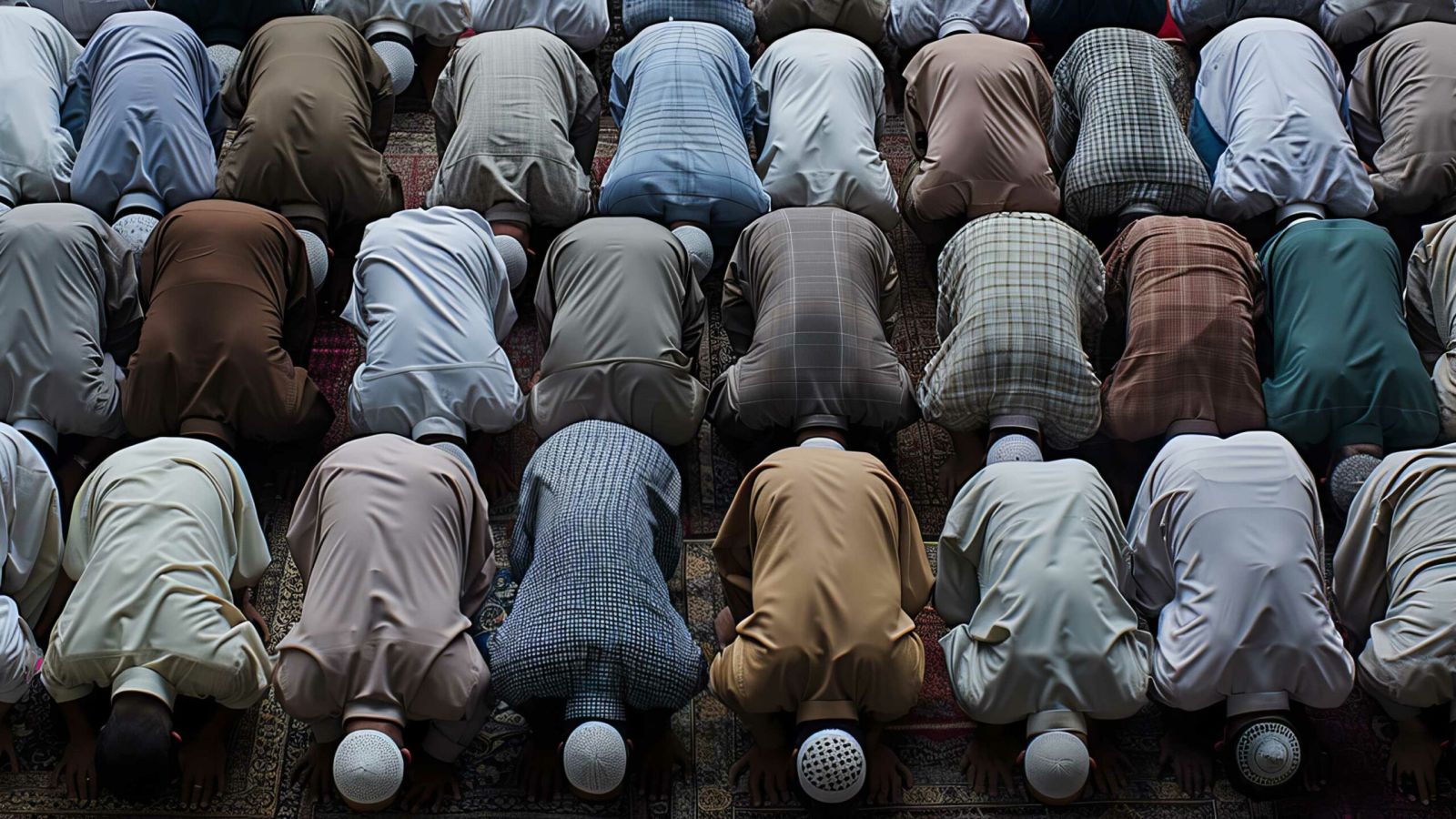The Obligation of Testifying to the Truthfulness of Everything Related by Allāh and His Messenger (ﷺ)
Imām ʿAbd al-Raḥmān ibn Nāṣir al-Saʿdī


قُلْ صَدَقَ اللَّه
“Say (O Muḥammad (صلى الله عليه وسلم)) : “Allāh has spoken the truth””
(Āli ʿImrān, 3:95)
وَمَنْ أَصْدَقُ مِنَ اللَّهِ قِيلًا
“Whose words can be truer than those of Allāh? (Of course, none).”
(Al-Nisāʾ, 4:122)
وَمَنْ أَصْدَقُ مِنَ اللَّهِ حَدِيثًا
“And who is truer in statement than Allāh?”
(Al-Nisāʾ, 4:87)
وَلَا يُنَبِّئُكَ مِثْلُ خَبِيرٍ
“And none can inform you (O Muḥammad (صلى الله عليه وسلم)) like Him Who is the All-Knower (of each and everything).”
(Al-Fāṭir, 35:14)
قُلْ أَأَنتُمْ أَعْلَمُ أَمِ اللَّهُ
“Say, “Do you know better or does Allāh (know better)?”
(Al-Baqarah, 2:140)
قُلْ أَيُّ شَيْءٍ أَكْبَرُ شَهَادَةً ۖ قُلِ اللَّه
“Say (O Muḥammad (صلى الله عليه وسلم)): “What thing is the most great in witness?” Say: “Allāh””
(Al-Anʿām, 6:19)
لَّٰكِنِ اللَّهُ يَشْهَدُ بِمَا أَنزَلَ إِلَيْكَ ۖ أَنزَلَهُ بِعِلْمِهِ ۖ وَالْمَلَائِكَةُ يَشْهَدُونَ ۚ وَكَفَىٰ بِاللَّهِ شَهِيدًا
“But Allāh bears witness to that which He has sent down (the Qurʾān) unto you (O Muḥammad (صلى الله عليه وسلم)), He has sent it down with His Knowledge, and the angels bear witness. And Allāh is All-Sufficient as a Witness.”
(Al-Nisāʾ, 4:166)
شَهِدَ اللَّهُ أَنَّهُ لَا إِلَٰهَ إِلَّا هُوَ وَالْمَلَائِكَةُ وَأُولُو الْعِلْمِ قَائِمًا بِالْقِسْطِ ۚ لَا إِلَٰهَ إِلَّا هُوَ الْعَزِيزُ الْحَكِيمُ
“Allāh bears witness that Lā ilāha illā Huwa (none has the right to be worshipped but He), and the angels, and those having knowledge (also give this witness); (He is always) maintaining His creation in Justice. Lā ilāha illā Huwa (none has the right to be worshipped but He), the All-Mighty, the All-Wise.”
(Āli-ʿImrān, 3:18)
Imām ʿAbd al-Raḥmān ibn Nāṣir al-Saʿdī (d. 1391 AH) comments on the aforementioned verses:
The verses that relate to this great meaning are numerous. They all prove, in the most apparent and plainly evident way, that among the most obligatory matters upon the slave of Allāh is that they testify to the truthfulness of Allāh. This truthfulness applies to what He has related to us from His perfect attributes and that which He has declared himself innocent and above from the attributes of deficiency. For He is more knowledgeable of such matters than His creation, and He has testified with regards to it, the greatest of all testifications. That which has been related concerning Himself and everything else [that has been related in the Qurʿān] occupies the very highest levels of truthful speech. This stipulates that the hearts of his slaves should not possess even an iota of doubt concerning anything related to them by Allāh. Rather, what He has related should occupy the station of that which is a firmly rooted, well-established, unmovable creed, completely unopposed by any objection, doubtless in every conceivable way.
Then, they must hold resolute and absolute assured knowledge that no matter could or ever will appear that will contradict that which has been related by Allāh and His Messenger (صلى الله عليه وسلم). Rather, know that anything that opposes it or seeks to negate it, regardless of the field of study this matter occupies, is false both in and of itself and whatever ruling is issued in consideration of it. This is because it is a complete impossibility that a sound, correct field of knowledge could exist that contradicts that which has been related by Allāh. Thus, these verses are among the greatest evidences that the ones who build their entire creed completely upon that which has been related by Allāh and His Messenger (صلى الله عليه وسلم) have indeed built their creed upon a firm, strong foundation. As they have built it upon that which is considered the foundation of all foundations.
Even if hypothetically there existed that which opposes it, whatever that may be, how could that opposition hold weight when [the Qurʾān and the Sunnah] is supported by intellectual evidence, evidences from the natural disposition of man [fiṭrah], the collective knowledge of distant lands and psychological evidences, all supporting and corroborating what has been related by Allāh and His messengers, testifying as to its truthfulness and the immense benefit derived from it. For this reason, Allāh praises specific individuals among His creation and those who have been granted understanding among them for basing their īmān in this foundation in their saying:
رَّبَّنَا إِنَّنَا سَمِعْنَا مُنَادِيًا يُنَادِي لِلْإِيمَانِ أَنْ آمِنُوا بِرَبِّكُمْ فَآمَنَّا
“”Our Lord! Verily, we have heard the call of one (Muḥammad (صلى الله عليه وسلم)) calling to Faith: ‘Believe in your Lord,’ and we have believed.”
(Āli-ʿImrān, 3:193)
وَقَالُوا سَمِعْنَا وَأَطَعْنَا
“They say, “We hear, and we obey.””
(Al-Baqarah, 2:285)
الَّذِينَ يَسْتَمِعُونَ الْقَوْلَ فَيَتَّبِعُونَ أَحْسَنَهُ ۚ أُولَٰئِكَ الَّذِينَ هَدَاهُمُ اللَّهُ ۖ وَأُولَٰئِكَ هُمْ أُولُو الْأَلْبَابِ
“Those who listen to the Word [good advice Lā ilāha illa Allāh (none has the right to be worshipped but Allāh) and Islamic Monotheism, etc.] and follow the best thereof (i.e. worship Allāh Alone, repent to Him and avoid ṭāghūt, etc.) those are (the ones) whom Allāh has guided and those are men of understanding (like Zayd bin ʿAmr ibn Nufayl, Salmān Al-Fārisī and Abu Dhar Al-Ghifārī).
(Al-Zumar, 39:18)
It is understood from these verses that any innovation undertaken by the people of false speech, of new creeds for which no authority has been revealed from Allāh, nor were said creeds built upon any foundation from the Qurʾān and the Sunnah, rather upon minds whose errors, faults, and misguidance are well-known, such that we can conclude that such creeds are among the most false of all falsehoods, the most foolish of all foolish speech. For they have turned away from that which has been related by Allāh and His Messenger (صلى الله عليه وسلم) to whatever their evil-inclined selves have beautified for them. They have answered the call of their minds which have not gained purity with real īmān, nor has it found nourishment with true īmān or firm, assured knowledge.
This principle is sufficient in refuting all of the opinions espoused by the people who turn away from the truth, without the need to fully elaborate upon the details of their falsehood. This is because as long as it is contrary to the definitive, conclusive legislations [from the Qurʾān and the Sunnah], and the evidences that have been heard [from the Prophet (صلى الله عليه وسلم)], we know it must be false. As everything that negates the truth is false. Just as that which is contrary to the truth must be a lie.
Source: Fatḥ al-Rabbānī: 23-24
Translated by: Riyād al-Kanadī

















